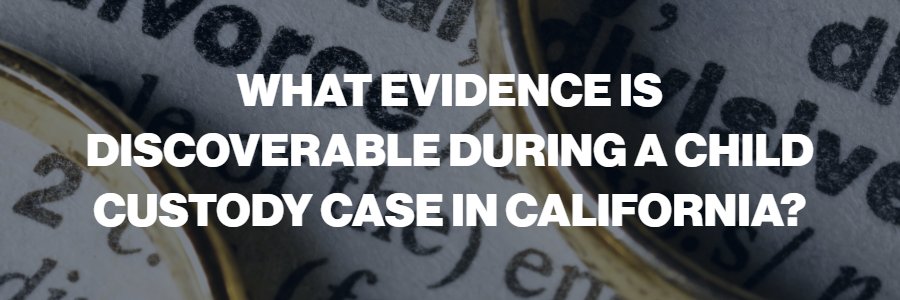Child custody is often the most difficult part of a divorce or legal separation case in California. If you have to go to trial to fight for custody of your child, you and your ex-spouse will go through the discovery phase of a lawsuit. The discovery phase of a family law case can be extensive and time-consuming. It is important to understand what this phase of your divorce case entails so that you are more prepared.
Understanding the Discovery Process in Child Custody Cases
In California child custody cases, the discovery process is a crucial stage where both parties gather evidence to support their claims. This process allows each side to request and examine documents, financial records, communication logs, and other relevant materials from the opposing party. Discovery may include depositions, interrogatories, and requests for admissions. It ensures transparency, helping the court make informed decisions about the best interests of the child. Proper legal guidance during discovery is essential to protect parental rights and secure a fair outcome.
How Does California Define Discoverable Evidence?
California Code of Civil Procedure Section 2017.010 states that any party may obtain discovery regarding any matter that is relevant to the subject matter of the legal action, if the matter is itself admissible as evidence or will with reasonable belief lead to the discovery of admissible evidence. In other words, any information that is relevant to the child custody case (and not privileged) can be “discovered” as evidence to support the case during the discovery phase.
California Evidence Code Section 940, however, prevents self-incriminating information from discovery in a family law case. This law states that an individual has the privilege to refuse to disclose any information that may incriminate himself or herself. If a child custody case involves allegations of domestic violence, for example, the spouse who is facing the allegations legally does not have to answer any questions about the incident if the answers will tend toward self-incrimination.
Common Types of Evidence Discovered in a Child Custody Case
Discovery in a California child custody case can involve many different processes and discovery devices that are used to obtain relevant and valuable information. These devices include depositions (interviews given under oath), interrogatories (written questionnaires), subpoenas for the production of documents and requests for admission. The goal of these devices is to acquire information that can be used to reach a settlement or as evidence in a child custody trial.
Common types of evidence that are discoverable in a custody case are:
- Bank statements
- Tax returns
- Pay stubs
- Credit card statements
- Witness statements
- Journal entries
- Emails
- Voicemails
- Photographs and videos
- Audio recordings
- Medical records
- School records
- Police reports
- Psychological evaluations
The list of potential evidence that is discoverable in a child custody case is long, according to our experienced San Diego child custody lawyer. Discovery often focuses on financial records to determine each parent’s ability to pay for child care and to divide the couple’s marital assets. Then, discovery will focus on each parent’s physical and mental fitness to have custody of the child. From there, the courts will determine the best custody arrangement for the child’s well-being, and whether either parent needs to pay child support to the other parent.

How Financial Records Can Impact Custody Decisions
Financial records play a vital role in child custody cases as they provide insight into each parent’s ability to support the child. Courts may review tax returns, pay stubs, and bank statements to assess financial stability, ensuring the child’s needs are met. Additionally, hidden assets or excessive spending may raise concerns about a parent’s credibility or priorities. Transparent financial disclosures help demonstrate that a parent can offer a stable and secure environment, which is crucial in custody determinations.
Are Text Messages Admissible as Evidence in California Family Court?
In most circumstances, text messages and other written communications – such as private messages and emails – are admissible as evidence during a child custody case in California. The family courts will only admit text messages as evidence, however, if the messages were obtained legally. The text messages must be relevant to the case and authenticated. This means that it must be proven that the spouse sent the text messages. The messages also must not have been obtained illegally, such as with stolen passwords or hacking. This is the only way that text messages will be permitted as evidence in a custody case.
Contact a San Diego Family Law Attorney for Help
Discovery during a divorce proceeding is often a complicated, stressful and lengthy process for all involved. This is especially true when a divorce case requires a child custody hearing. It is important to seek the counsel of an experienced family law attorney who has handled child custody cases in California in the past during your lawsuit.
The right lawyer can help you work through legal issues with your ex-spouse during child custody settlement negotiations or at trial. This includes guiding you through the discovery process and helping you obtain admissible evidence to support your custody case. For more information about gathering evidence for a custody case, contact the divorce lawyers at Boyd Law in San Diego.




